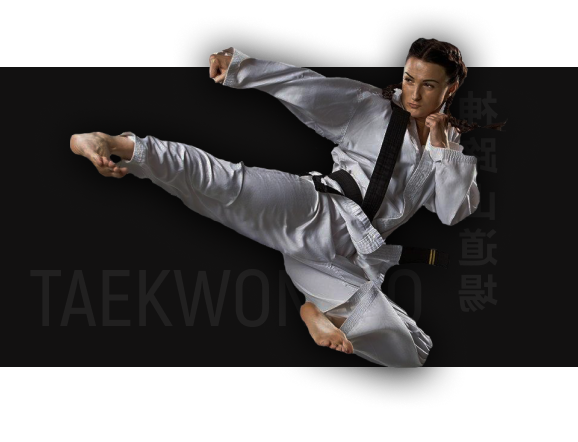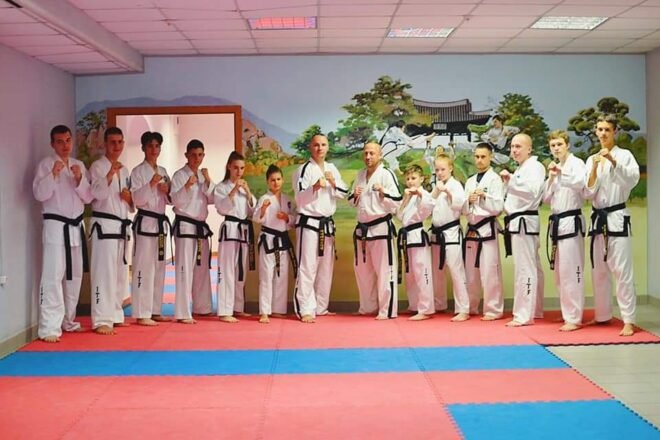Korean martial art
Age groups: children and adults


Taekwon-Do (Kor. 태권도) is a discipline that, through training, allows a person to strengthen health, learn self-defense and
teaches to work on the self-development of spirituality and intellect.
The meaning of Taekwon-Do: "Tae" means "kick", "kwon" means "fist", or "punch", "Do" means "way" (meaning Tao). Thus,
the term Taekwon-Do can be translated as "the path of the foot and fist." Special attention in the competitive practice of
Taekwon-Do is paid to the percussion technique of the feet, but this is only part of the training program.
According to the definition of Choi Hong Hi, "Taekwon-Do means a system of spiritual training and self-defense techniques
without weapons, along with health, as well as skilled execution of punches, blocks and jumps performed with hands and feet to
defeat one or more rivals."
